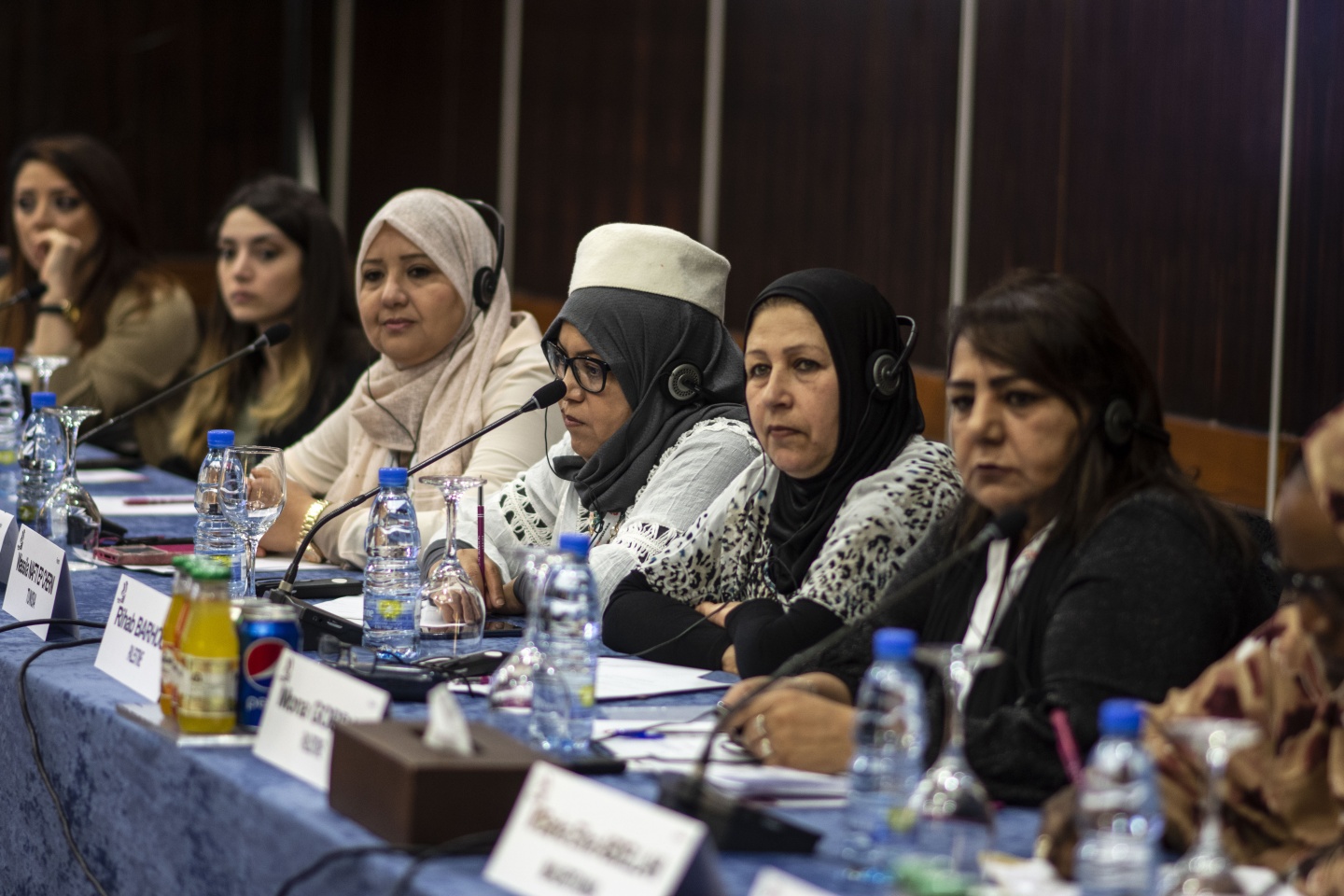24 April, 2019On 23-24 April, a network of women from across the Middle East and North Africa (MENA) met in Beirut, Lebanon to identify challenges, distinct issues and opportunities around women’s participation and representation in unions and the workplace.

The IndustriALL MENA women’s network meeting opened with lively discussions, exploring the journey they had taken since the launch in 2015, and where they should go in the future.
“We have a 40 per cent target for the representation of women within IndustriALL and our affiliated unions. But this will only work if there is genuine engagement from women, not just token participation. Women need real decision-making power,”
said Armelle Seby, IndustriALL gender coordinator.
Increasing women’s participation in unions and in leadership roles was raised by all participants as they considered how far they have come through years of work, together as a region as well as in their respective countries.

Hashemeya Alsadawe
“Despite the challenges that we face in the Middle East, including being blocked by some men with patriarchal attitudes, in 2003 I became the president of a union committee, and in 2004 I became the president of my union. But men supported me to achieve these positions, after I showed my value. We don’t have to see men as the enemy,”
said Hashemeya Alsadawe, IndustriALL MENA co-chair.
Although things are changing, women are still not fully part of economic and political life. Women face patriarchal societies with outdated traditions and norms that hold them back. The region has the lowest rate of women's participation in the labour market. Less than 30 per cent of women access the labour market, compared to 48,5 per cent worldwide. Unemployment rates reach 20 per cent, double that of men. Unions need to make the participation of women a priority.
“Without the participation of women, a sustainable society will not be achieved. We must promote the employment of women regardless of the sector. We must create opportunity where women can participate,”
said Kemal Özkan, IndustriALL assistant general secretary.
The meeting addressed the recurring excuses used by people, including women, to explain their low participation and engagement in unions. A frequent myth was that women fight amongst themselves and therefore are not able to attain leadership positions.
“Unions must look at the issues that are common to the collective workforce, but they must also look at the particularities. There are demands that are specific to women. If women are not at the bargaining table and in leadership positions their issues will be dropped,”
said Valter Sanches, IndustriALL general secretary.
Participants worked on establishing and implementing an action plan for 2019. To keep the momentum, they established core themes that participants were tasked to take back to their national networks. The themes raised included: pushing for a gender perspective on health and safety, improving maternity protection, organizing and ensuring real participation of women, and pushing to stop violence against women by using the IndustriALL pledge and supporting the international campaign in favor of the adoption of an ILO convention addressing gender-based violence.
In conclusion, Armelle Seby said that
“fighting for gender equality goes to the heart of what we do as unions. MENA women's regional and national networks are important platforms to discuss this issue and develop union strategies. But it is critical that gender issues are integrated into the core work of the unions in this region, and taken up as a priority issue by union leadership.”

IndustriALL MENA Women's Network



